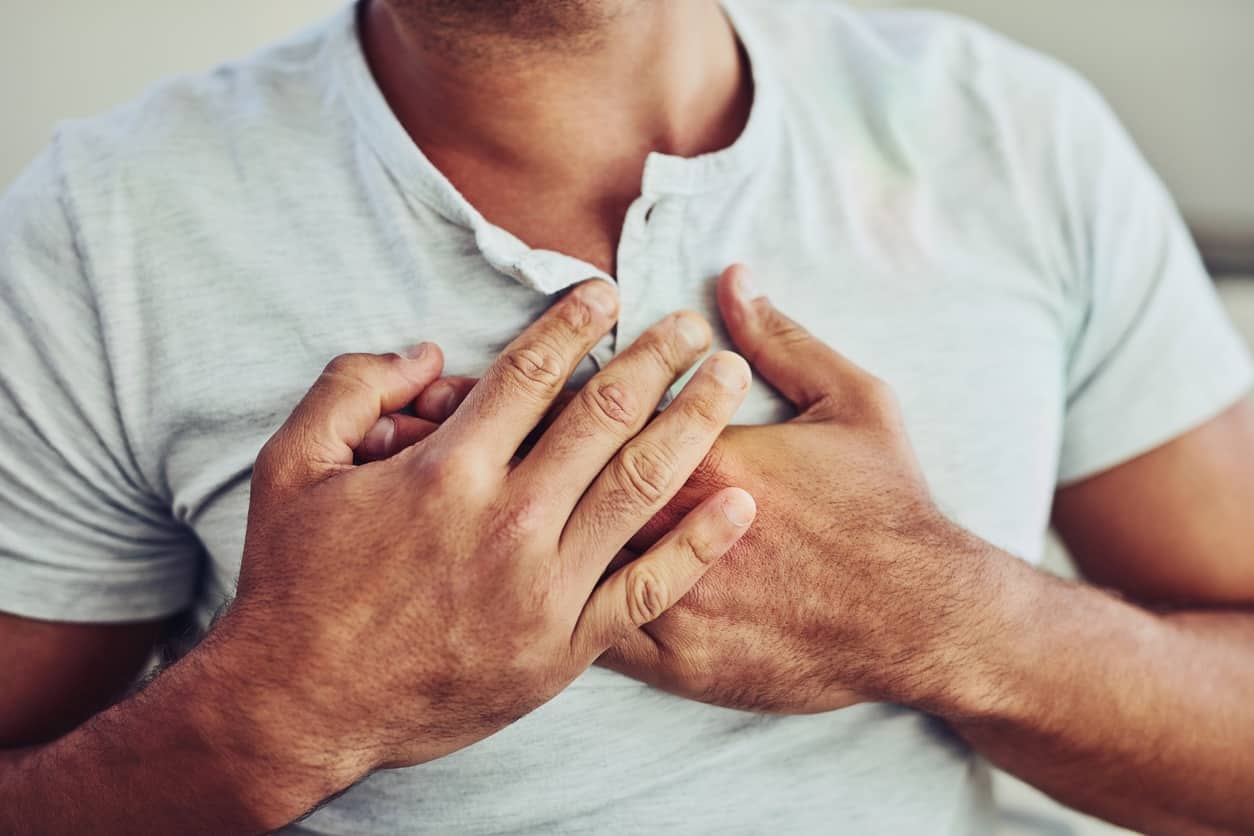Chest pain appears in many forms, ranging from a sharp stab to a dull ache. Sometimes chest pain feels crushing or burning. In certain cases, the pain travels up the neck, into the jaw, and then spreads to the back or down one or both arms. Because chest pain can indicate a serious problem, it’s important to seek immediate medical help.
Heart disease is the leading cause of death in the United States. Early intervention is critical in reducing morbidity and mortality. Improving public knowledge of the signs and symptoms of a heart attack can lead to improved survival and better outcomes.
Chest Pain Symptoms
Chest pain can cause many different sensations depending on what’s triggering the symptom. Often, the cause has nothing to do with the heart — though there’s no easy way to tell without seeing a healthcare provider.
Heart-related chest pain
Although chest pain is often associated with heart disease, many people with heart disease say they have a vague discomfort that isn’t necessarily identified as pain. In general, chest discomfort related to a heart attack or another heart problem may be described by or associated with one or more of the following:
- Pressure, fullness, burning, or tightness in your chest
- Crushing or searing pain that spreads to your back, neck, jaw, shoulders, and one or both arms
- Pain that lasts more than a few minutes, gets worse with activity, goes away and comes back, or varies in intensity
- Shortness of breath
- Cold sweats
- Dizziness or weakness
- Nausea or vomiting
Heart-related causes
Examples of heart-related causes of chest pain include:
- Heart attack: A heart attack results from blocked blood flow, often from a blood clot, to the heart muscle.
- Angina: Chest pain caused by poor blood flow to the heart due to plaque buildup in the arteries.
- Aortic dissection: A life-threatening condition where the inner layers of the main artery (aorta) separate.
- Pericarditis: Inflammation of the sac around the heart, causing sharp pain that worsens when breathing in or lying down.
Other Types of Chest Pain
Digestive causes
- Heartburn
- Swallowing disorders
- Gallbladder or pancreas problems
Muscle and bone causes
- Costochondritis
- Sore muscles
- Injured ribs
Lung-related causes
- Blood clot in the lung (pulmonary embolism)
- Inflammation of the membrane covering the lungs (pleurisy)
- Collapsed lung
- High blood pressure in the lung arteries (pulmonary hypertension)
Other causes
- Panic attack
- Shingles
Diagnosis
Chest pain doesn’t always signal a heart attack. However, healthcare providers in the emergency room usually test for a heart attack first because it’s potentially the most immediate threat to your life. They may also check for life-threatening lung conditions, such as a collapsed lung or a blood clot in the lung.
Immediate tests
- Electrocardiogram (ECG or EKG)
- Blood tests
- Chest X-ray
- Computerized tomography (CT) scan
When to See the Doctor for Chest Pain
Call 911 if you have any of these symptoms along with chest pain:
- A sudden feeling of pressure, squeezing, tightness, or crushing under your breastbone
- Chest pain that spreads to your jaw, left arm, or back
- Sudden, sharp chest pain with shortness of breath, especially after a long period of inactivity
- Nausea, dizziness, rapid heart rate or rapid breathing, confusion, ashen color, or excessive sweating
- Very low blood pressure or very low heart rate
If possible, seek care at the nearest Emergency Room. When in doubt, call your doctor about any chest pain you have.
At Ally Medical Emergency Rooms, we are committed to providing comprehensive care for all types of chest pain and related conditions. Our team of experienced physicians is ready to diagnose and treat a wide range of medical emergencies. If you or a loved one experiences chest pain, visit one of our eight locations for prompt and effective care.



